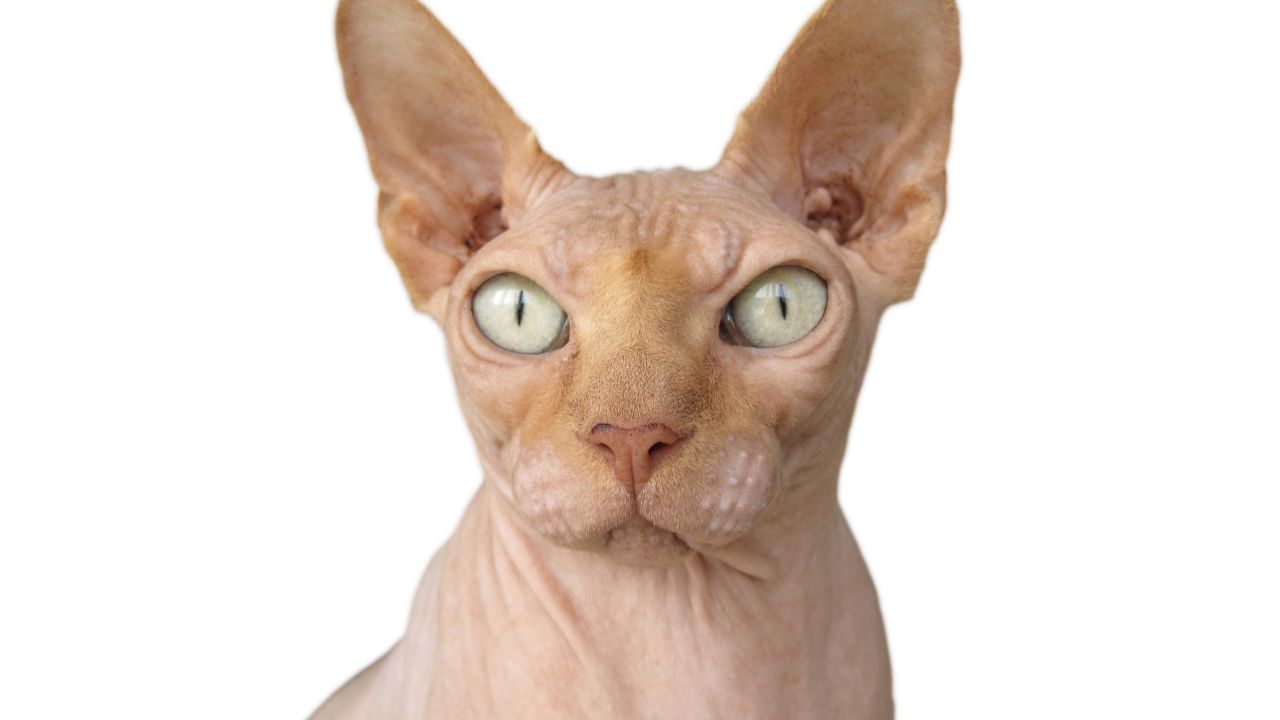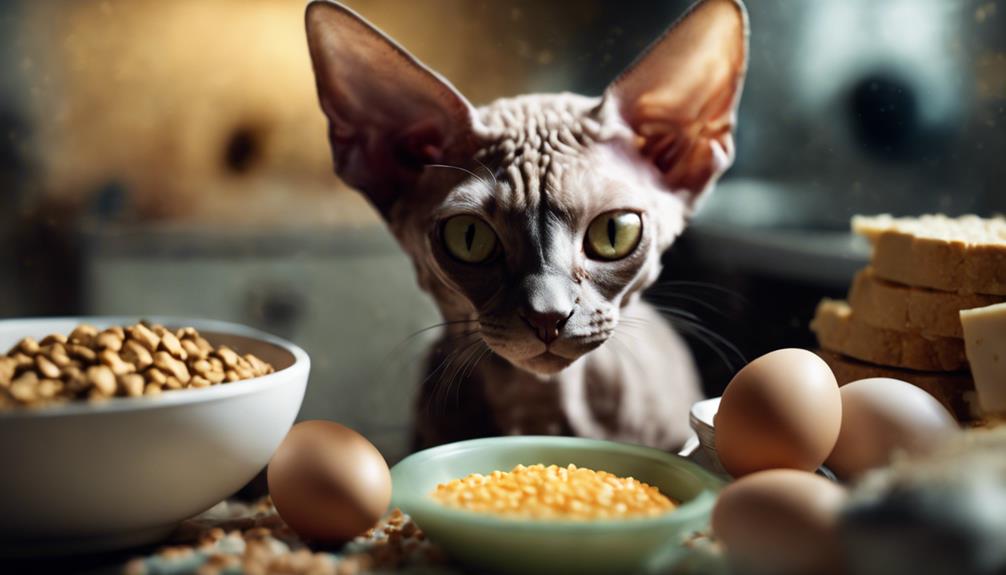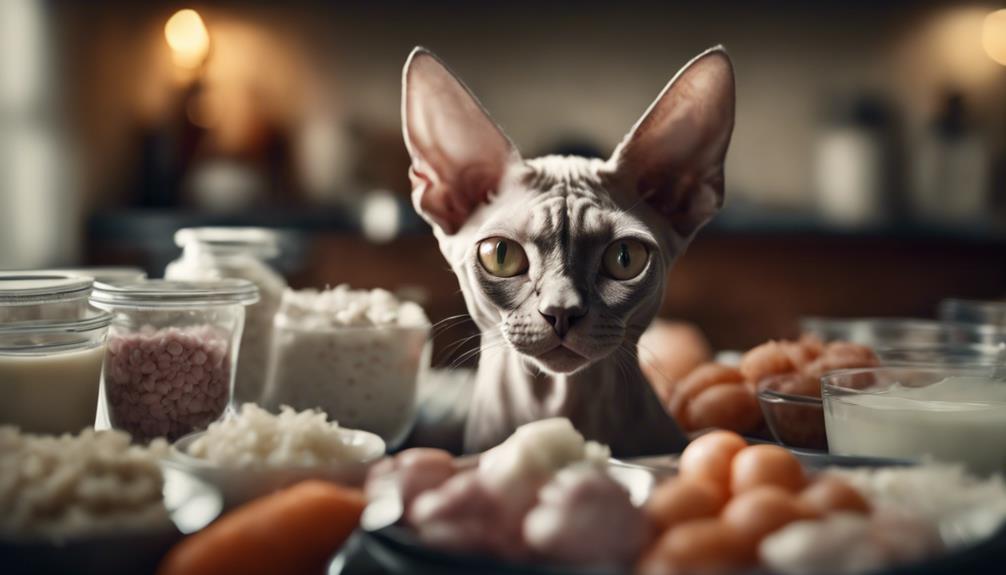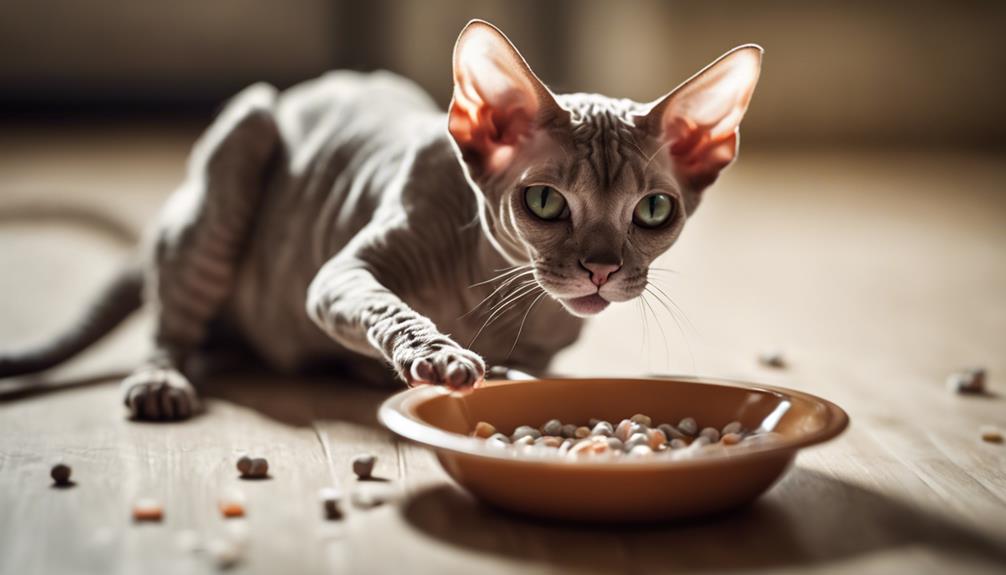Sphynx cats are a unique breed that have gained popularity in recent years. Known for their hairless appearance and distinctive personalities, they have become a trendy choice for cat lovers. However, as an experienced cat owner, I would caution against getting a Sphynx cat. While they may seem like an attractive choice, there are several reasons why they may not be the best fit for everyone.
Firstly, Sphynx cats are prone to several health issues, including hypertrophic cardiomyopathy, a condition that affects the heart. This means that they require regular medical checkups and may require expensive treatments. Additionally, their hairless appearance makes them susceptible to skin issues, which can be difficult and costly to manage. As a result, owning a Sphynx cat can be a significant financial burden.
Secondly, Sphynx cats require a lot of maintenance. Their hairless skin requires regular cleaning and moisturizing to prevent dryness and irritation. They also need to be bathed frequently to remove oil buildup and prevent acne. Additionally, their unique appearance requires extra attention to ensure that they stay warm in colder temperatures. All of these factors make owning a Sphynx cat a time-consuming and high-maintenance commitment.
Overall, while Sphynx cats may seem like an attractive choice, they require a significant amount of time, effort, and money to properly care for. As an experienced cat owner, I would recommend that those considering getting a Sphynx cat carefully weigh the pros and cons before making a decision.
Physical Characteristics
Sphynx cats are medium-to-large-sized cats that have a hairless body, wrinkled skin, and large ears that resemble those of a bat. They have a muscular and heavy appearance for their size, and their skin texture is often described as warm peaches, suede, or chamois leather.
One of the most notable physical characteristics of Sphynx cats is their lack of fur. This makes them a popular choice for people with allergies, but it also means that they have unique grooming needs. Because they don’t have fur to absorb oils and dirt, they need to be bathed frequently to keep their skin healthy and clean.
Sphynx cats also have unique feet. Their toes are long and slender, with distinctive webbing between them that helps them to grip surfaces and climb with ease. This webbing also makes them excellent swimmers, which is a trait that is not common in most cats.
Another interesting fact about Sphynx cats is that they have a higher body temperature than most cats. This is because they don’t have fur to keep them warm, so their bodies have to work harder to regulate their temperature. As a result, they tend to seek out warm places to snuggle up, and they may even feel warmer to the touch than other cats.
In conclusion, the physical characteristics of Sphynx cats are unique and fascinating. While their hairless bodies and distinctive features may make them an attractive option for some people, it’s important to consider their grooming needs and higher body temperature before deciding to bring one into your home.
Health Concerns
As a Sphynx cat owner, I have learned that they are prone to some health concerns that you should be aware of before getting one.
One of the most common health issues with Sphynx cats is hypertrophic cardiomyopathy, a condition where the heart muscle becomes abnormally thick. This can lead to heart failure and sudden death. It’s important to have your Sphynx cat regularly checked by a vet to monitor their heart health.
Another concern is their sensitive skin. Sphynx cats are hairless, so they lack the protection that fur provides. They need frequent baths to keep their skin free from excess oils and dirt which can lead to skin problems. Urticaria pigmentosa is another Sphynx skin problem, it results in red pigmented spots on the skin.
Regular vet visits are also important for Sphynx cats. They can develop respiratory problems, such as upper respiratory infections, asthma, and allergies. Keeping them indoors and away from other animals can help prevent these issues.
In summary, Sphynx cats can be prone to health issues, including hypertrophic cardiomyopathy, skin problems, and respiratory problems. Regular vet visits and proper care can help prevent these issues.

Dietary Needs
As a Sphynx cat owner, I’ve learned that these cats have unique dietary needs. Due to their high metabolism, they require a diet that is high in protein and fat. It’s important to provide them with a balanced diet that meets their nutritional needs.
When it comes to feeding your Sphynx cat, it’s essential to choose high-quality food that is specifically formulated for cats. Avoid feeding your cat human food, as it can upset their stomach and lead to health issues.
I recommend feeding your Sphynx cat a combination of wet and dry food. Wet food provides hydration, while dry food helps keep their teeth clean. Be sure to read the label on the cat food carefully to ensure that it contains all the essential nutrients that your cat needs.
It’s also important to provide your Sphynx cat with a clean litter box. Sphynx cats are prone to digestive issues, so it’s crucial to keep their litter box clean to prevent any infections or illnesses.
In conclusion, Sphynx cats require a specific diet that meets their nutritional needs. Providing them with high-quality food and a clean litter box is essential to their health and happiness.
Behavior and Personality
Sphynx cats are known for their unique appearance, but their behavior and personality can be a challenge for some pet owners. As an experienced cat owner, I would not recommend getting a Sphynx cat if you are looking for a low-maintenance pet.
Sphynx cats are very dependent on their owners and can suffer from separation anxiety. They crave attention and companionship and do not do well when left alone for long periods of time. If you work long hours or travel frequently, a Sphynx cat may not be the best choice for you.
While Sphynx cats are friendly and affectionate towards their owners, they can be aloof with strangers. They may take some time to warm up to new people and can be wary of visitors to your home. If you have frequent guests or children in your home, a Sphynx cat may not be the most suitable pet.
Despite their need for attention, Sphynx cats are not always the most cuddly cats. They have a high energy level and can be quite active and playful. They may prefer to play and explore rather than sit on your lap for hours on end. If you are looking for a lap cat, a Sphynx cat may not be the best choice for you.
In conclusion, while Sphynx cats can be great companions for the right owner, they require a lot of attention and care. If you are not prepared for their high maintenance needs, it may be best to consider a different breed of cat.
Common Misconceptions
When it comes to Sphynx cats, there are several misconceptions that people have. As someone who has researched the breed extensively, I want to clear up some of these misconceptions.
Firstly, many people believe that Sphynx cats are completely hairless. However, this is not entirely true. Sphynx cats do have a fine layer of hair that can hardly be seen. This fine layer of hair is actually what gives the cat its unique texture. It is also important to note that even though Sphynx cats have less hair than other breeds, they still produce the allergenic protein Fel d 1, which can cause allergies in some people.
Another common misconception is that Sphynx cats require a lot of maintenance. While it is true that Sphynx cats need frequent baths to keep their skin free from excess oils and dirt, they do not require brushing or grooming like other cats. This is because they do not have a coat of fur to maintain.
Some people also believe that Sphynx cats are more prone to skin issues like acne. While Sphynx cats do have more oily skin than other breeds, this does not necessarily mean that they are more prone to acne. In fact, many Sphynx cats have beautiful, clear skin.
Finally, some people believe that Sphynx cats lack natural oils in their skin, which can lead to dryness and other issues. However, this is not entirely true. While Sphynx cats do have less natural oils in their skin than other breeds, they still have enough to keep their skin healthy and moisturized. Additionally, frequent baths can actually strip the skin of its natural oils, so it is important to use a moisturizing shampoo and to not bathe your Sphynx cat too often.
Special Considerations
When it comes to owning a Sphynx cat, there are some special considerations that you should keep in mind. Here are a few things to consider before bringing home a Sphynx:
- Heat: Sphynx cats do not have a coat to keep them warm, which means they can easily become too cold or too hot. It’s important to keep your Sphynx in a temperature-controlled environment, especially during extreme weather conditions.
- Expensive: Sphynx cats can be quite expensive to purchase and care for. They require regular grooming, vet visits, and a special diet to maintain their health.
- Clothing: Since Sphynx cats do not have a coat, they may need to wear clothing to keep them warm and protect their sensitive skin from the sun. It’s important to find clothing that fits properly and is comfortable for your cat.
- Company: Sphynx cats are social animals and require a lot of attention and interaction. They may become bored or lonely if left alone for long periods of time.
- Cat bed: Sphynx cats love to snuggle up and stay warm. Providing them with a cozy cat bed can help them feel secure and comfortable.
- Cold weather: Sphynx cats are not well-suited for cold weather and may become too cold if left outside for too long. It’s important to keep them indoors during the winter months.
- Ear cleaner: Sphynx cats are prone to ear infections and require regular cleaning to prevent them. It’s important to use a gentle ear cleaner specifically designed for cats.
- Fans: Sphynx cats can overheat easily, especially during the summer months. Using fans or air conditioning can help keep them cool and comfortable.
- Claws: Sphynx cats require regular nail trimming to prevent their claws from becoming too long and causing damage to furniture or other items in your home. It’s important to use a nail trimmer specifically designed for cats and to be gentle when trimming their nails.
How do Sphynx cats behave around other pets?
Sphynx cats are known for their friendly and sociable behavior, which makes them ideal for living with other pets. However, it is important to introduce them to other pets properly, especially if the other pets are not used to being around cats.
Sphynx cats are generally gentle and calm, and they tend to get along well with other cats and dogs. They are not aggressive or territorial, and they rarely engage in fights or conflicts with other pets.
It is important to note that Sphynx cats are very social creatures, and they require a lot of attention and interaction from their owners. If they are left alone for long periods of time, they may become anxious or depressed, which can lead to behavioral problems.
If you are considering getting a Sphynx cat and you already have other pets, it is important to introduce them slowly and carefully. Start by allowing them to sniff each other through a closed door, and gradually increase their interaction over time. With patience and proper training, your Sphynx cat can become a beloved member of your household and get along well with other pets.
Top Takeaways
After researching and considering the pros and cons of owning a Sphynx cat, I have come to the conclusion that this breed may not be the best fit for everyone. Here are some key takeaways to keep in mind before bringing a Sphynx cat into your home:
- Health concerns: Like any purebred cat, Sphynx cats can develop genetic health problems. One common issue is hypertrophic cardiomyopathy, a condition in which the heart muscle becomes abnormally thick. Regular screening for heart issues is essential if you plan to get a Sphynx cat.
- Grooming requirements: Despite being hairless, Sphynx cats require regular grooming to keep their skin healthy and clean. This includes weekly baths with a medicated pet shampoo and regular ear cleaning. If you are not prepared to commit to this grooming routine, a Sphynx cat may not be the right choice for you.
- Temperament: While Sphynx cats are known for being affectionate and social, they may not be the best choice for households with young children or other pets. They can be sensitive to rough handling and may not get along well with other animals.
- Cost: Sphynx cats can be expensive to purchase from a breeder, and they may also require more frequent veterinary care than other cats due to their health concerns. Additionally, their grooming needs can add up in terms of cost.
Overall, while Sphynx cats may be a great fit for some households, they require careful consideration and preparation before bringing them into your home.




